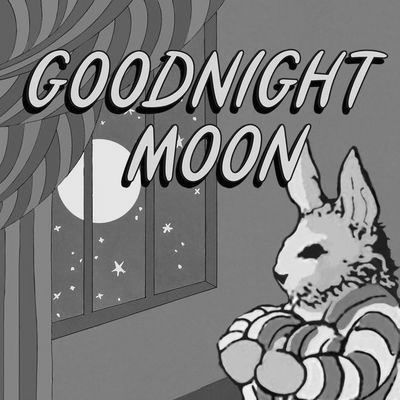I Used to Insist I Didn’t Get Angry. Not Anymore.
On female rage.
On female rage.
Leslie Jamison New York Times Magazine Jan 2018 15min Permalink
Leïla Slimani’s best-seller explores the dark relationship of a mother and her babysitter.
Lauren Collins New Yorker Dec 2017 30min Permalink

Teaching Emily Dickinson at Santa Fe Community College in Gainesville, Florida.
William Bowers Oxford American Jan 2003 40min Permalink

When she died in 1952, author Margaret Wise Brown left the rights to Goodnight Moon to a nine-year-old neighbor named Albert Clarke. The book became a classic. Clarke, living entirely off the royalties, became a deadbeat.
Joshua Prager The Wall Street Journal Sep 2000 15min Permalink
“Who we become has so much to do with the experiences we had, and how we survived.”
Nicole Chung Shondaland Oct 2017 10min Permalink
“‘Make America Great Again’ means ‘Make America White Again.’ So now you have this other explosion of people who want to feel above something, better than something. And who is that? That’s me.”
Mario Kaiser, Sarah Ladipo Manyika Granta Jun 2017 20min Permalink
What’s a writer to do when the audacity dwindles?
Taffy Brodesser-Akner New York Jul 2017 15min Permalink
A profile of the writer.
Anne Helen Petersen Buzzfeed Jun 2017 20min Permalink
"I’m not familiar with books on style. My role in the revival of Strunk’s book was a fluke—just something I took on because I was not doing anything else at the time. It cost me a year out of my life, so little did I know about grammar."
E.B. White, Frank H. Crowther, George Plimpton The Paris Review Sep 1969 30min Permalink
The greatest writers of the nineteenth century were drawn to the North Pole. What did they hope to find there?
Kathryn Schulz New Yorker Apr 2017 25min Permalink
On the history of the essay and someone who had gotten it all wrong.
William Deresiewicz The Atlantic Jan 2016 15min Permalink
Did a forgotten black gumshoe inspire the famous works of both Raymond Chandler and Dashiell Hammett?
Daniel Miller LA Times Nov 2014 10min Permalink
David Roberts spent his life facing death in the mountains. Now he is facing a fatal prognosis.
Brad Rassler Outside Oct 2016 25min Permalink
Shirley Jackson wrote 17 books while raising four children — and she couldn’t have had a successful career without them.
Ruth Franklin New York Sep 2016 15min Permalink
The mysteries of the least known Brontë sister.
Laura June Topolsky The Hairpin Aug 2016 15min Permalink
Four dispatches from the 100th anniversary of Bloomsday.
In most places in the world, June 16 is just another day on the calendar, but here in Dublin, the day that James Joyce earmarked for Ulysses is celebrated with a fervor not seen here since the days of the druids when, if you really wanted to party, you needed a couple skeins of wine and a grove full of virgins.
Jim Ruland The Believer Jun 2004 15min Permalink
We have a rich literature. But sometimes it’s a literature too ready to be neutralized, to be incorporated into the ambient noise. This is why we need the writer in opposition, the novelist who writes against power, who writes against the corporation or the state or the whole apparatus of assimilation. We’re all one beat away from becoming elevator music.
Adam Begley, Don DeLillo The Paris Review Sep 1993 40min Permalink
A profile of author Maggie Nelson.
Hilton Als New Yorker Apr 2016 15min Permalink
An interview with the novelist.
Haruki Murakami, John Wray The Paris Review Jun 2004 35min Permalink
Searching for meaning at Baldwin’s soon-to-be-demolished home in France.
Rachel Kaadzi Ghansah Buzzfeed Feb 2016 25min Permalink
“It’s odd, the older I get, the more I remember.”
Lila Azam Zanganeh, Umberto Eco Paris Review Jun 2008 40min Permalink
A profile of the editor behind Ta-Nehisi Coates’s Between the World and Me, Jay Z’s Decoded, and more.
Vinson Cunningham New York Times Magazine Feb 2016 10min Permalink

On George Plimpton and the founders of The Paris Review.
Early in the fifties another young generation of American expatriates in Paris became twenty-six years old, but they were not Sad Young Men, nor were they Lost; they were the witty, irreverent sons of a conquering nation.
Gay Talese Esquire Jul 1963 20min Permalink
“You read enough books in which people like you are disposable, or are dirt, or are silent, absent, or worthless, and it makes an impact on you. Because art makes the world, because it matters, because it makes us. Or breaks us.”
Rebecca Solnit Literary Hub Dec 2015 10min Permalink
The origin story of Gabriel García Márquez’s classic.
Paul Elie Vanity Fair Dec 2015 20min Permalink